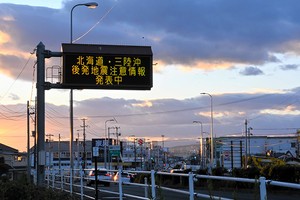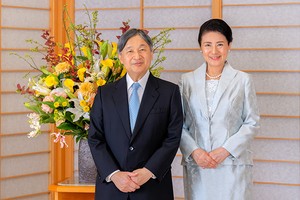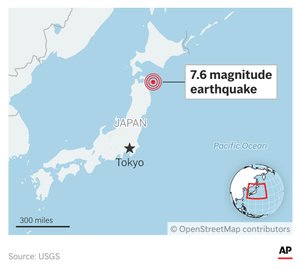By FUMIO MASUTANI/ Senior Staff Writer
March 2, 2022 at 07:20 JST
The increased use of online classes during the COVID-19 pandemic has weakened the ability of university students to cooperate, socialize or work patiently, attributes valued by prospective employers, a survey showed.
The survey, called the Progress Report on Generic Skills (PROG), was conducted by Tokyo-based Pick & Mix, a company affiliated with the Kawaijuku cram school, to compare the social abilities of students in their first and third years of university.
Data for the 20,556 juniors surveyed in 2021 revealed they had become less cooperative in attaining shared goals, less able to build good relationships, and showed decreased leadership and patience compared with the time when they were first-year students.
According to the survey, the increase in online classes used during the health crisis offered fewer chances for the students to hold discussions or present research outcomes in groups. That, in turn, reduced their abilities to establish trust and work with teammates.
In the 2020 survey, juniors showed improvements in those abilities compared with their first year, before the pandemic struck.
The PROG survey asks students 225 questions, including if they speak frankly or politely with others and if they lead teammates or act in line with others in a group.
The students’ cooperative and social skills are ranked on a scale of 1 to 7 based on their responses of “fully” or “somewhat” agree.
Naoki Matsumura, a chief researcher at the general career research institute of Riasec Inc., a Tokyo-based company that developed the PROG with Kawaijuku, said the students’ worsened skills can be traced to the many classes held on the internet.
The novel coronavirus pandemic broke out in spring 2020, after the juniors covered in the 2021 survey had just started their second years.
“Fewer opportunities were provided for them to work in groups during classes,” Matsumura said. “Reduced chances for discussions and presentation among students had a grave impact because such sessions help to improve their abilities.”
He said the students lost patience because “various activities were restricted during the coronavirus crisis, making it difficult to take independent action.”
The juniors, however, were able to pinpoint problems, take measures and develop plans as well as the third-year students in the 2020 survey.
“Many students likely refined these skills by committing themselves to their homework and reflecting on the content taught in online classes,” Matsumura said. “Planning ability was apparently polished to deal efficiently with many assignments in many cases.”
He said university operators need to revise their education methods, such as introducing group sessions and bolstering career-oriented training programs.
According to Matsumura, individuals who join voluntary workshops run by teachers and students or seek advice from teaching and other university staff tend to have increased basic skills, including cooperativeness, even during the pandemic.
“For having students nurture that kind of attitude, awareness of their future prospects should be raised at an early stage,” he said.





















A peek through the music industry’s curtain at the producers who harnessed social media to help their idols go global.
A series based on diplomatic documents declassified by Japan’s Foreign Ministry
Here is a collection of first-hand accounts by “hibakusha” atomic bomb survivors.
Cooking experts, chefs and others involved in the field of food introduce their special recipes intertwined with their paths in life.
A series about Japanese-Americans and their memories of World War II